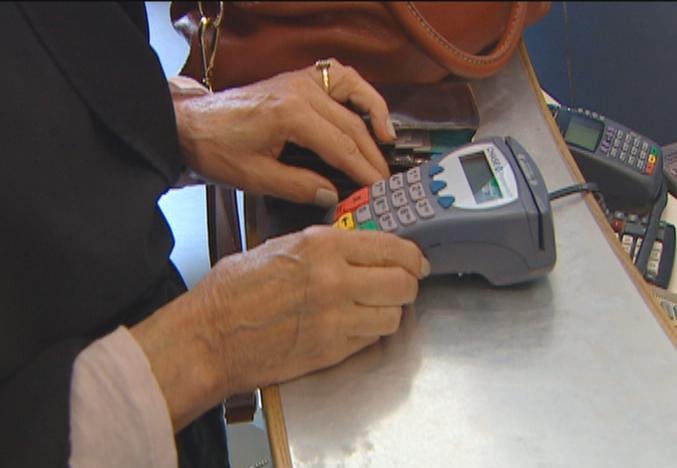Listen to this article
Approximately 4 minutes
The audio version of this article was created using text-to-speech, an artificial intelligence-based technology.
Visa and Mastercard announced a revised agreement with merchants who accused the card networks of charging too high fees for accepting their credit cards, after a judge rejected an earlier $30 billion settlement with the United States as inadequate.
Monday's settlement ends a 20-year lawsuit in which the businesses accused Visa, Mastercard and banks of conspiring to violate U.S. antitrust laws, including by having card networks collect “transaction fees” for processing transactions.
The agreement, which requires court approval, calls for Visa and Mastercard to reduce payment processing fees, currently typically between 2 and 2.5 percent, by 0.1 percentage point over five years.
Merchants will be allowed to choose whether to accept certain categories of U.S. cards, including commercial cards, premium consumer cards, including many popular “rewards” cards, and standard consumer cards.
Standard consumer rates will be capped at 1.25% until the agreement expires. Merchants will also have more flexibility to charge additional fees when paying by credit card.
In 2024, swipe fees, also known as interchange fees, totaled $111.2 billion in the U.S., up from $100.8 billion in 2023 and four times the level in 2009, according to the National Retail Federation, the largest U.S. retail trade group.
Visa said the agreement provides merchants “of all sizes” with “significant relief, greater flexibility and control over how they accept payments from their customers.”

Mastercard said small merchants in particular will benefit from greater flexibility, lower costs and simplified regulations, while businesses and consumers will receive a “better payments experience”.
Neither company admitted wrongdoing and agreed to the settlement.
Traders criticize the settlement
The settlement came after U.S. District Judge Margot Brody in Brooklyn rejected the $30 billion settlement in June 2024.
The agreement would reduce transaction fees by about 0.07 percentage points over five years and also give merchants more flexibility to charge additional fees.
But the judge said fees would remain elevated and the $6 billion in annual savings to merchants was “paltry” compared to what Visa and Mastercard could still charge.
She also accused the agreement of imposing a “Respect All Cards” rule on merchants, requiring them to accept all Visa and Mastercards or none.
Merchants have long accused Visa and Mastercard of having “anti-regulatory” rules that prevent the companies from directing customers to cheaper means of payment.
Doug Cantor, general counsel for the National Association of Convenience Stores, said the agreement gives banks no incentive to lower the rates they charge, while it allows Visa and Mastercard to raise their own rates “without any restrictions.”
Canadians who choose to pay with Visa and MasterCard may face additional fees starting Thursday. After a long legal battle over who pays certain credit card processing fees, companies can now pass those fees — up to two percent per transaction — onto customers.
He also said merchants can't simply turn away rewards cardholders, who account for more than 80 percent of credit cards.
“Merchants can't afford to turn down most of the cards they offer,” Kantor said in an interview.
Canada has already reached a settlement
In 2023, the governmenteveryone made a deal with Visa and Mastercard limiting interchange fees to an average of 0.95 percent. Before this, the fees businesses paid on each transaction were about 1.4 percent.
At the time, the government said it expected the deal to save retailers about $1 billion over five years. But small business owners criticized the deal because it only applied to businesses that processed a certain amount of their sales through Visa or Mastercard, which they said limited savings for small businesses.
A class action settlement between Canadian businesses and two card companies in 2022 also opened the door for businesses to transfer commission to clients with extra charge. The fee was capped at 2.4% and businesses had to explain the fee to customers.
In the class action, Visa and Mastercard also agreed to pay the companies millions of dollars for years of swiping fees.









